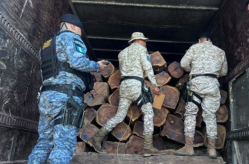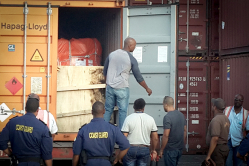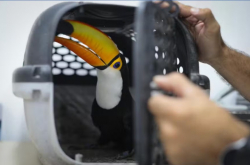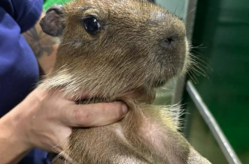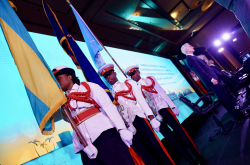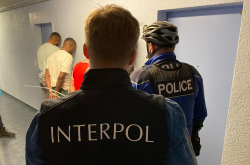LYON, France - An international operation against the illegal trade in reptiles has seen thousands of seizures worldwide and almost 200 suspects identified through coordinated information sharing.
Targeting the criminals and networks behind this illegal global trade, Operation Blizzard (12 April – 22 May) involved agencies from 22 countries and resulted in seizures ranging from live animals to high-end fashion products.
The operation has so far led to more than 4,400 seizures and the identification of more than 180 suspects, triggering arrests and investigations worldwide. With six arrests in Italy and another six in Spain, further arrests and prosecutions are anticipated as investigations continue.
Worldwide seizures and highlights include:
- some 4,400 live animals seized, including 20 crocodiles and alligators, 2,700 turtles and tortoises, as well as 1,500 snakes, lizards and geckos;
- 6 Kenyan Sand Boa snakes found in air cargo in the United States as well as two pythons in Western Australia;
- boas, turtles, tortoises and geckos seized from a pet shop and private residence in Israel;
- 150 products derived from reptiles, including handbags, wallets, watchstraps, medicines and taxidermy products were confiscated;
- live parrots, owls, falcons, swans, as well as elephant ivory and bush meat products were also seized during the operation.
A coordinated global response
Member countries of the INTERPOL Wildlife Crime Working Group developed Operation Blizzard.
It was jointly coordinated by INTERPOL and Europol, in close collaboration with national agencies such as New Zealand’s Department of Conservation, to enhance international efforts in tackling the illegal trade in reptiles.
“The significant seizures and information exchange across countries achieved during Operation Blizzard underline how coordinated global initiatives can maximize impact,” said Daoming Zhang, INTERPOL’s Assistant Director in charge of Environmental Security.
“The illegal trade in reptiles has close associations with organized crime – Operation Blizzard sends a clear message to criminals that the global law enforcement community is homing in on them,” added Mr Zhang.
An intelligence-driven operation
Intelligence was gathered and shared ahead of the operation via INTERPOL National Central Bureaus and Europol, to identify criminal networks involved in the illegal reptile trade. This information was used to shape operational activity and track suspected offenders and their associates.
Europol’s Head of the Economic and Property Crime Unit, Pedro Felício said: “Globally coordinated police operations like operation Blizzard are now at the forefront of environmental preservation. Nevertheless, despite the various efforts made, the threat of environmental crime remains high.”
Aircraft passengers, commercial cargo, pet shops, and legally permitted reptile holders were also targeted with searches and inspections carried out by officers, to detect alleged offending and to help build information sources.
“Operation Blizzard clearly demonstrates that by pooling our enforcement and intelligence resources, the enforcement community firmly contributes to disrupting this destructive trade in reptiles. This operation is testimony to what can be achieved if we all work together,” said Dylan Swain, Principal Compliance Officer with New Zealand’s Department of Conservation.
Results will continue to be analysed globally to generate further intelligence which will be used as guidance in future national, regional and international law enforcement efforts.




